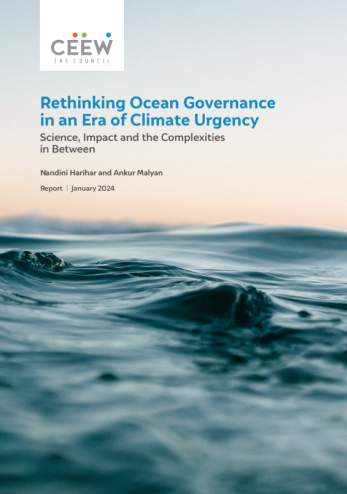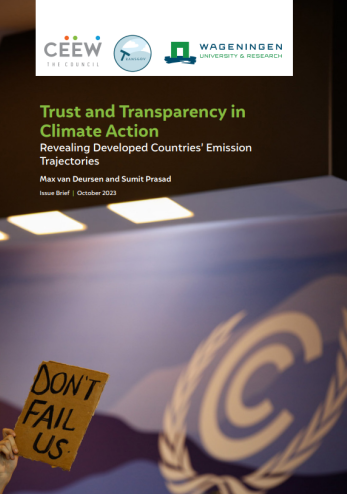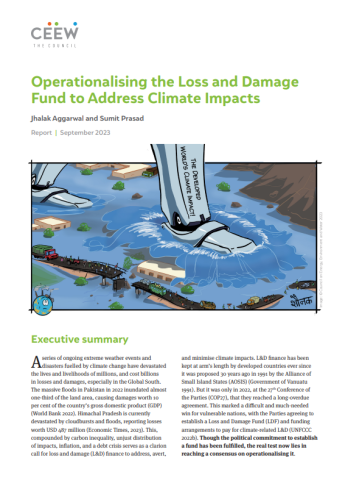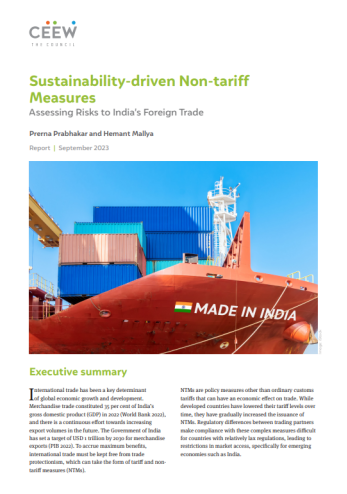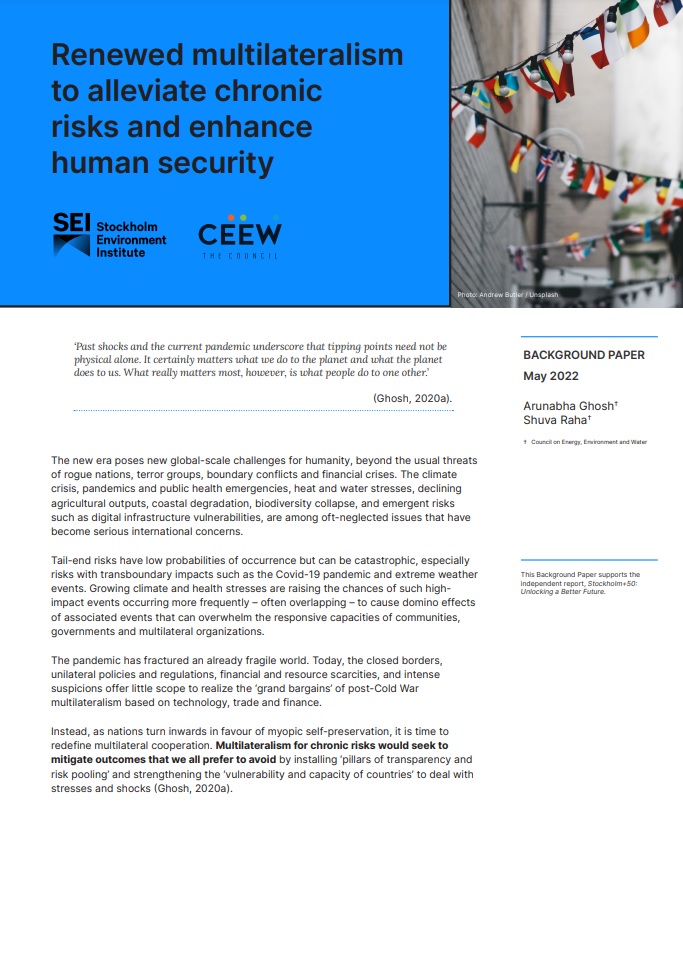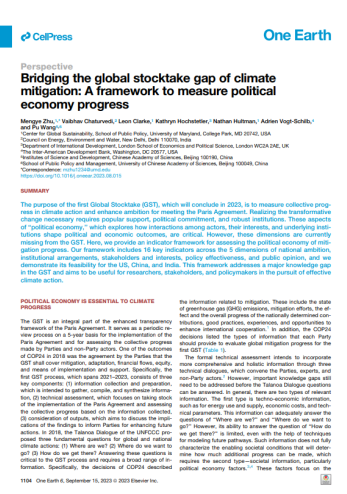Paper
Renewed Multilateralism to Alleviate Chronic Risks and Enhance Human Security
Arunabha Ghosh and Shuva Raha
May 2022 | International Cooperation
Ghosh, Arunabha and Shuva Raha. 2022. Renewed Multilateralism to Alleviate Chronic Risks and Enhance Human Security. Stockholm+50 background paper series. Stockholm Environment Institute, Stockholm.
Overview
This study, in collaboration with the Stockholm Environment Institute, assesses a growing global disparity in access to essential services today, using updated data on poverty and gap in global access. As per the World Bank 2020 data, the new poor are the urban dwellers in a post-COVID setup, especially in the developing nations.
The study notes the enterprising and human-centered attribute of multilateralism that will prove helpful for fairer distribution in the international trade system. It highlights the need for a renewed sense of multilateral cooperation in the global community to encourage greater engagement in mitigation of common chronic risks like the implications of the recent pandemic. The study also examines how multilateralism may also help the several global resolutions aimed towards reducing unequal access of basic services and commodities between different countries.
Key Highlights
- The virulence of COVID and the lack of timely and efficient vaccination for all has exposed the collective unpreparedness for new global risks. The impact has been massive and has led to a shift in the traditional priorities of several foreign policy experts.
- Globally, COVID infections reached 239 million and around 5.45 million died of it by the first week of 2022, as per this year's data from the John Hopkins University. Despite the numbers and the many resolutions aimed towards equal access to medicinal drugs, there was an unfair distribution of the vaccines necessary for the many infected in countries across the developing world.
- This level of inequality has raised many questions around existing structures in international trade. Multilateral action would help rebuild trade, bring into play a more human-centered international trading system and would enable access to medicines and treatment of indigenous knowledge.
- There is also a rising concern about the extreme temperatures across countries. Going by the recent estimates of The World Meteorological Organization (WMO), the surface temperatures are set to rise by 1.65 degrees Celsius within the next 8 years. Flooding incidents have seen a three-fold rise since the 1980s besides extreme incidents of forest fires everywhere.
- The study has also observed that GDP losses from 1998 to 2017 caused by climate-related disasters including reduced agricultural productivity, water insecurity, coastal flooding and resulting increased health-risks affect the lower-income groups far more adversely in relation to the high-income counterparts.
Key Recommendations
- Upgrade and expand public health infrastructure and take incentives to protect the environment. The singular focus on boosting the ‘hard power’ of countries has been largely futile in light of the climate collapse and the growing global health infrastructure crises.
- Focus on a renewed multilateralism to counter the many risks around us that are chronic and universal in nature. Being historical polluters, the major industrialised and developed nations have had a long-running record of low accountability in the global arena, with an unfair burden on the poorer nations to compensate for the actions of a few.
- Create structural inclusivity for the developing and the poorer nations. Although there has been some progression in this aspect with countries such India, China and Africa being added to the core groups, there still remains many democratic deficits.
- Find a multilateral solution which would not tamper with the competitiveness of the emerging economies. Multilateral cooperation can push for goals such as industrial decarbonisation.
- Set up supranational entities and regulations to fairly distribute the emerging demands for resources such as green hydrogen, encourage more equitable research and market creation.
- Link Multilateral Environmental Agreements (MEAs) to the Sustainable Development Goals in order to increase the interrelation between MEAs and the non-environmental treaties, thereby increasing compliance and effectiveness.
- Prioritise developing a Climate Risk Atlas for the developing countries to assess critical vulnerabilities against extreme weather and incidents such as floods and coastal degradation. This would help in supporting multilateral cooperation structured around mitigation of chronic risks. The data coming from this atlas should further help in understanding the Global Climate Risk Index.
- Set up a Global Resilience Reserve Fund set up for countries with different levels of vulnerability to pool the risks they are prone to. By doing this, the extent of risk can be lowered for these countries.
Multilateralism for chronic risks would seek to mitigate outcomes by installing pillars of transparency and risk pooling and strengthening the ‘vulnerability and capacity of countries’ to deal with stresses and shocks.




